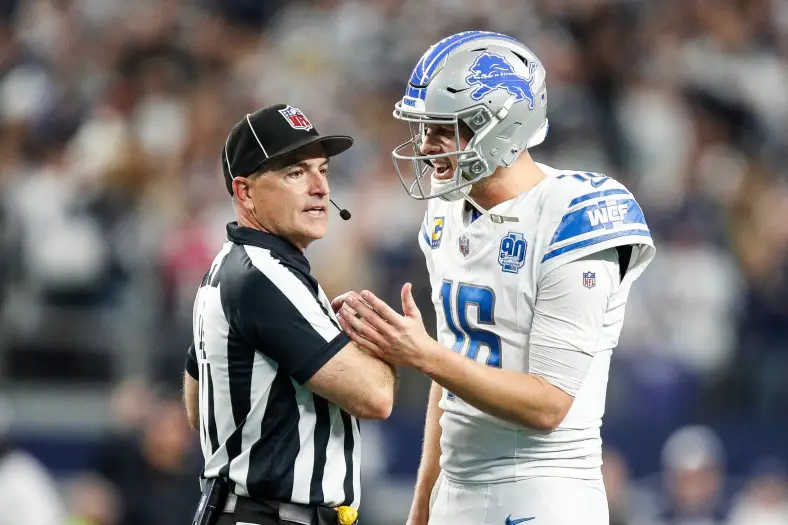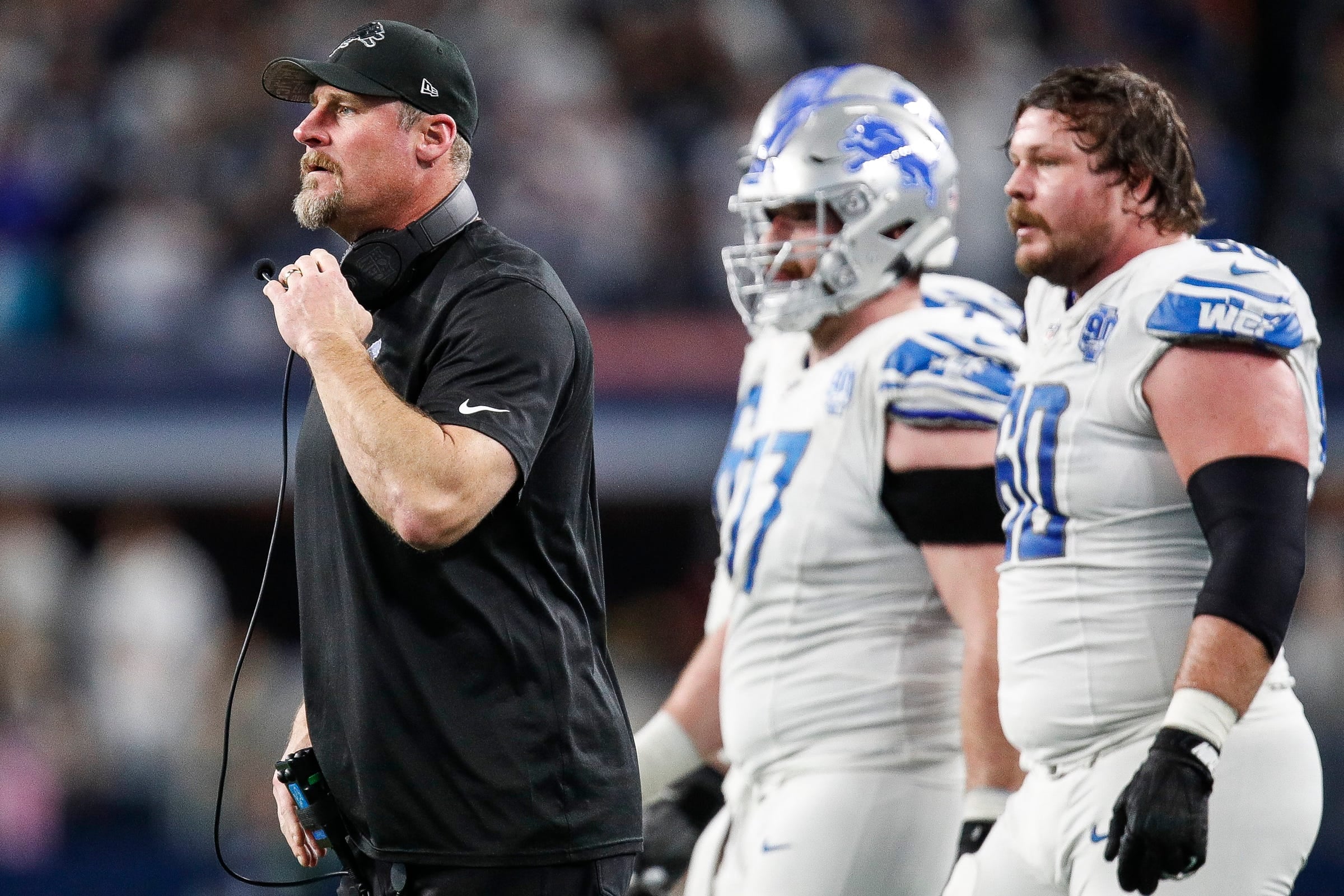
The NFL video emphasizes the importance of accurately reporting eligible receivers, serving as a reinforcement following the Week 17 controversy between the Detroit Lions and Dallas Cowboys. This highlights the league’s commitment to maintaining clarity and proper officiating in such situations.
If there was any uncertainty regarding the reporting of an eligible receiver, the NFL has now officially issued and emphasized the guidelines on how to do so.
In order to prevent a recurrence of the confusion that took place at the conclusion of the Dallas Cowboys’ 20-19 win against the Detroit Lions, the NFL sent a video to every one of the 32 teams on Tuesday, explicitly outlining the players’ duty to report as eligible receivers.
In order to be eligible to receive a pass, players wearing uniform numbers 50-70 or 90-99 are required to provide a “physical signal” and then approach the referee. Only after completing these steps will the player be officially recognized as an eligible receiver.

In the instructional video, Walt Anderson, the NFL senior vice president, emphasized the player’s responsibility in ensuring that the change in their status is clearly communicated to the referee. This involves making a physical signal with their hands raised up and down in front of their chest, as well as verbally informing the referee about their intention to act as an eligible receiver.
During the controversial two-point conversion play involving the Detroit Lions, three offensive tackles—Taylor Decker (No. 68), Penei Sewell (No. 58), and Dan Skipper (No. 70)—approached referee Brad Allen. Although Decker claimed to have reported himself as eligible, Allen acknowledged Skipper as the eligible receiver instead.
In a critical moment, when Lions quarterback Jared Goff successfully connected on a two-point conversion pass to Decker, providing Detroit with a 22-21 lead and only 23 seconds remaining, the play was nullified as Decker received a penalty for illegal touching.
This setback caused the Lions, with an 11-5 record, to drop from the No. 2 seed to No. 3. Conversely, the Cowboys, also with an 11-5 record, climbed from the No. 5 seed to the No. 2 position with only one game left in the regular season.
In relation to the controversial reporting issue against the Dallas Cowboys, there are reports suggesting that the NFL believes the Detroit Lions were at fault in this situation.
The Detroit Lions attempted to mislead by falsely indicating an eligible receiver in their reporting.
Dan Campbell, the head coach of the Detroit Lions, acknowledged on Monday that he had briefed the officials about the play before the game. However, he admitted that he intentionally directed three linemen to Allen, aiming to bewilder the Cowboys. Ironically, the strategy ended up confusing not only the Cowboys but also Allen himself.
According to Cowboys owner Jerry Jones, the defense is expected to be aware of the eligible receivers before the play unfolds. Initially, there was criticism directed at Allen, suggesting it was an officiating error. As per the NFL rulebook, if an investigation were to establish that Allen’s decision was deemed “extraordinarily unfair” and significantly impacted the game’s outcome, Commissioner Roger Goodell would have the authority to overturn the result of the game.
Despite Detroit Lions head coach Dan Campbell’s intention to take a significant risk in Week 18, the NFL declared that no action would be taken regarding the team’s attempt at deception, which ultimately went awry.
However, ESPN’s Adam Schefter reported that the contentious conclusion might have been preventable had Allen’s officiating crew not overlooked a tripping penalty on the Cowboys’ prior possession. Schefter noted that this oversight could lead to a downgrade for Allen’s crew, impacting the likelihood of their selection for a postseason assignment.
Leave a Reply